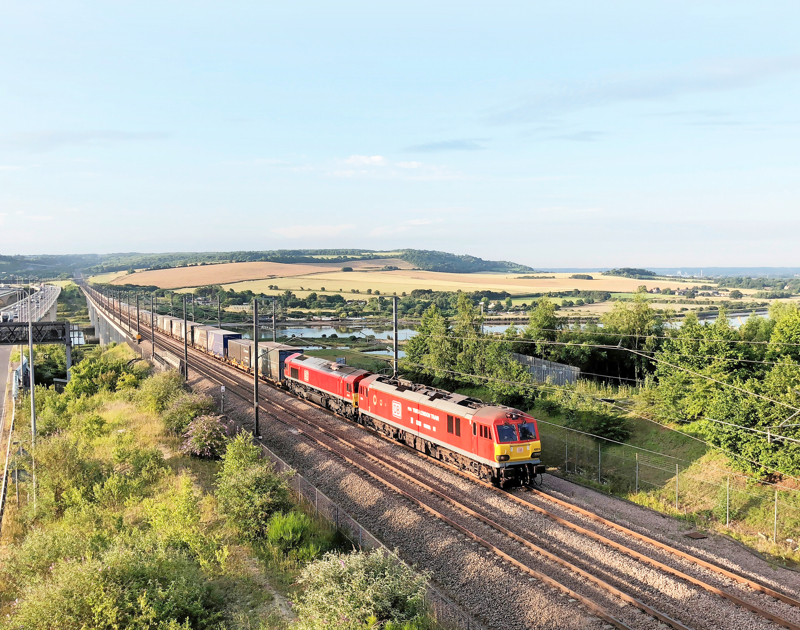
DB Cargo UK has called on High Speed 1, Eurotunnel and the government to make subtle policy tweaks that will encourage modal shift away from ships and lorries and onto rail for international freight journeys.

DB Cargo UK has called on High Speed 1, Eurotunnel and the government to make subtle policy tweaks that will encourage modal shift away from ships and lorries and onto rail for international freight journeys.
Kathryn Oldale, Head of Strategy, Policy and Communications at DB Cargo UK, told RAIL: “Today, cost is the primary blocker to international freight growth.
“There is volume waiting to come in and waiting to go out of the UK. If you look at bottlenecks at the ports, that volume could all go by rail [through the Channel Tunnel] rather than being shipped. The blocker is the infrastructure costs on HS1 and Eurotunnel.”
Oldale was speaking to RAIL prior to the Office of Rail and Road ordering HS1 to lower track access charges for both freight and passenger services.
Between April 2025 and April 2030, HS1 will charge freight operators £7.22 per train kilometre, down from the current £11.20.
Oldale welcomed the move, but said more could be done: “This is a significant step forward in creating a competitive, international service offering for rail freight in the UK.
“The reduced access charges on HS1 for freight demonstrate a clear intention to support freight growth in line with domestic transport policy. Everyone agrees that international freight belongs on rail, so we need to drive our shared ambition to create a more attractive offering against a tough economic backdrop.”
According to DB, the majority of the cost associated with running international trains lies in travelling along HS1.
“If you look at a container journey from Spain to the UK, the majority of the cost is on UK domestic infrastructure. It is domestic policy that we need to change to be more in line with the rest of Europe,” said Oldale.
“It’s great that we have rail freight targets, and Network Rail’s track access discount scheme for new flows clearly demonstrates that we’re going in the right direction. But we would like to see greater emphasis on promoting the use of rail freight with accompanying domestic policy to underpin rail freight as the backbone of international freight transportation.”
There is plenty of spare capacity through the Channel Tunnel - DB told RAIL just 8% of the paths that are reserved for freight services are utilised.
However, high access charges isn’t the only problem affecting DB’s ability to run economically viable trains along HS1. Oldale said a little-known rule whereby a Class 92 can only haul 1,100 tonnes also hampers growth aspirations.
“A further cost prohibitor is that you can only trail 1,100 tonnes on HS1 with a Class 92,” she explained.
“If we want to run a full load - 1,800 tonnes, which we do - we have to split it. You have one trainload coming through the tunnel, then we split it into two for the run along HS1 due to its operating regulations.
“If we can crack that nut, it would be a huge unblocker for international rail freight because it would reduce the cost of running one train rather than two.”
She continued: “We’ve looked at an engineering solution to improve the tractive effort from the ‘92s’ to take it from 1,100 to 1,800 tonnes, to give assurances to HS1 that we can operate safely and efficiently with a higher payload. This obviously is a further cost, on top of the cost of maintaining expensive assets on a day-to-day basis.
“It would be simple tweaks to make it economically viable to run more trains. When we’re having to split trains into two that means double the access charges which are already more expensive than domestic trains anyway. These subtle tweaks would be revolutionary for the growth of the industry.”
Login to continue reading
Or register with RAIL to keep up-to-date with the latest news, insight and opinion.

















Login to comment
Comments
No comments have been made yet.